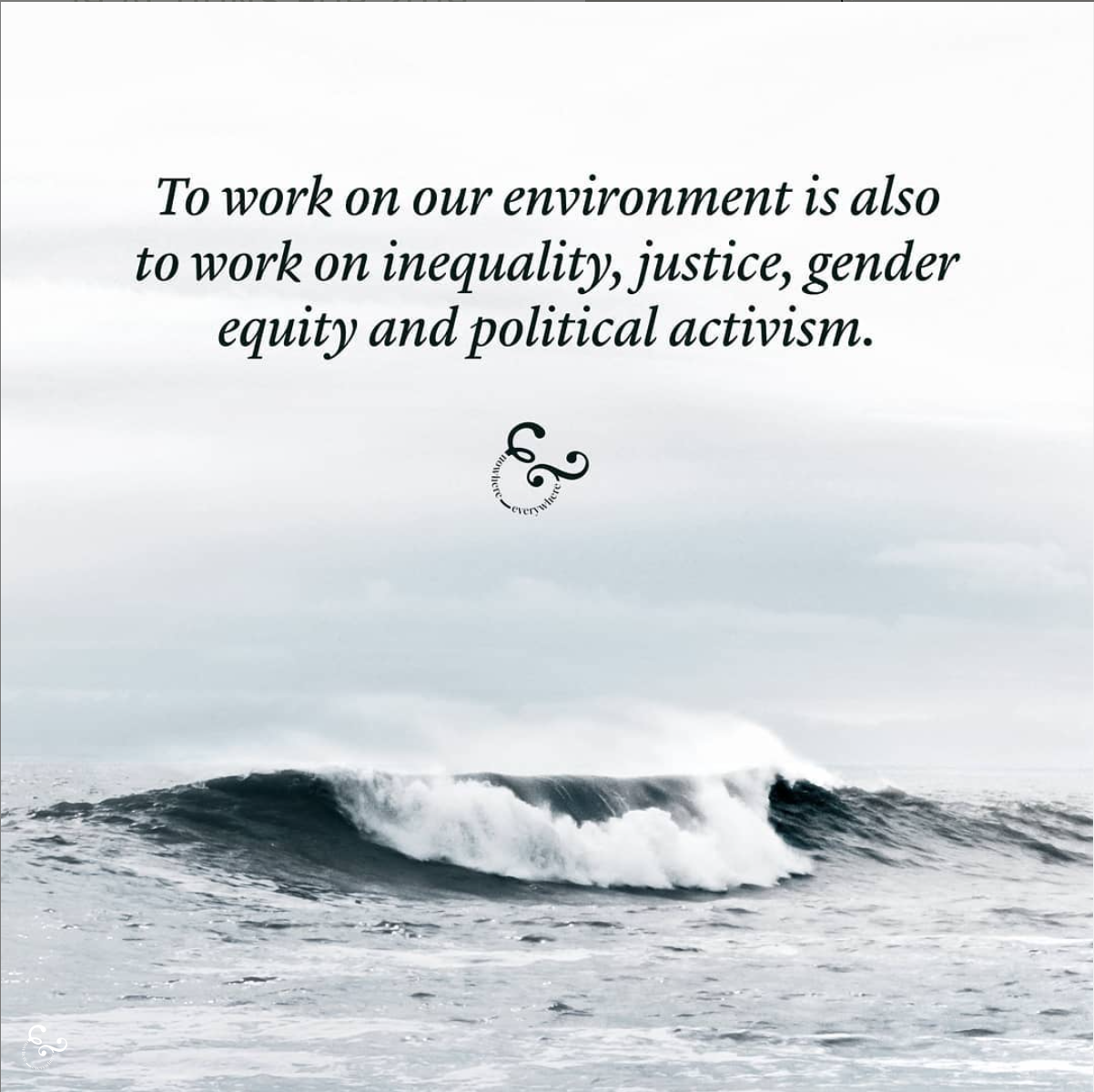Today is World Day of Social Justice. Other than the obvious fairness, human rights and reparations of the past, social justice work is directly related to our environment. True environmentalism must address inequality, justice, gender equity and political activism. Without doing so we exclude large portions of our population from crafting ideas and implementing solutions, we do not give people the resources and opportunities to protect and conserve communities, cultures, lands and animals, and all the while we force many to face the consequences of our own actions and suffer irreparable harm.
Take a look at the latest OHI (Ocean Health Index) report for example. The top places on the list are either uninhabited and isolated or very rich countries. The bottom 10 are some of the poorest places in the world and often in the most conflict. It is no coincidence these were all horrifically colonized countries; Guinea, Guinea Bissau, Syria, Somalia, Sierra Leone, DRC, Lebanon, Nicaragua, Libya and Côte d’Ivoire.
Whilst protecting our lands should not be burdened only to the people that least impact them, in the Amazon for example, there are vast regions that are saved from our dedication to deforestation for agriculture due to the Indigenous peoples that live on, and defend, their land and rights.
In countries where many communities face poverty, there is often a reliance on natural resources and with accumulating factors of climate change and increased demand for our growing population along with agricultural activity, poverty often results in more environmental issues such as overfishing and the large reduction of species. Something that isn’t fixed without first solving the existing poverty (which we should be doing regardless).
The only way we reconcile with our Earth and protect our ecosystems is to work on all the issues that influence these outcomes which is why we are vocal on this and support organizations that are specifically focussed on them. They are all related and entwined. Good for humans, good for the environment.


